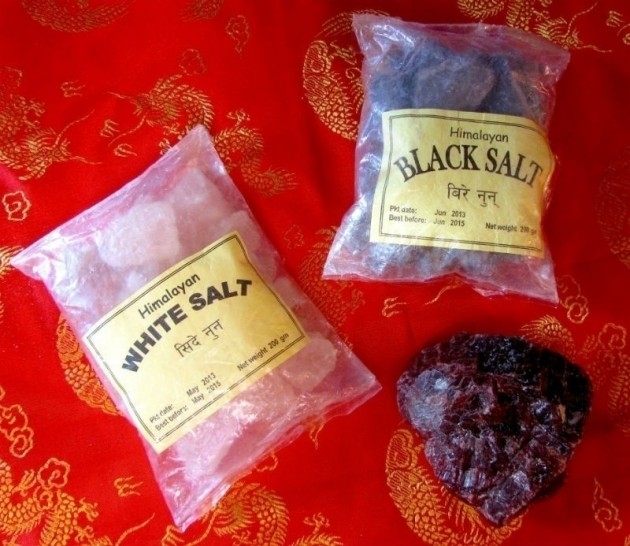Ulcers (duodenal and gastric), H. Pylori
Your digestive system produces strong acids and juices that are designed to help break down the food you eat so that its components can be used to nourish the body. The lining of the healthy stomach is marvelously resistant to these juices and is not affected by their caustic nature. In ulcer patients, this defense of the stomach's lining against stomach acids has broken down somehow, so that...
On Tour and On TV!
I just came back from a snowy Montreal where I gave 2 lectures; "7 Foods to Avoid to Allow for Meaningful Detoxification " and "An Introduction to the Functional and Nutritional Treatments for Behavioral and Developmental Disorders (Autism Spectrum, PDD, ADD, ADHD)." I also provided consultations and skin treatments, as I do in so many other locations. It was wonderfully...
Iso-D3
Question: I listened to the "truth" series and learned so much that helped me really understand what my body needed to be healthy. You really dispelled some important myths for me. It was a real relief to know I didn't need as much protein as I'd been taught. Everything you said helped me understand why I felt worse when I was eating the way Dr. Perricone...
Asthma
Asthma is a disease in which inflammation of the airways restricts airflow in and out of the lungs. The word asthma comes from the Greek word for "panting." The panting and wheezing sound characteristic of asthma occur because of the restricted flow of air. Normally, when you breathe in an irritant or are subjected to a stressor such as exercise, your airways relax and open, allowing...
Autoimmune Conditions
Examples of autoimmune conditions include the following: Rheumatoid arthritis (RA) Type 1 diabetes Crohn's Disease Hashimoto's thyroiditis Neurological diseases Multiple Sclerosis (MS) Glomerulanephritis Pernicious Anaemia Goodpasture's syndrome Scleroderma Raynaud's Phenomenon Lupus (e.g., systemic lupus erythematosus [SLE]) Inflammatory bowel disease (IBD)...
Candida Albicans
Candidiasis is an infection with a fungus of the Candida strain, usually limited to the skin and mucous membranes, but sometimes is systemic and life-threatening. Candida albicans are a single cell yeast/fungus that is found in practically 100% of the population. It lives on the mucous membranes of the body, the digestive/intestinal tract, vagina and the skin. MOST...
Ear Dysfunction - Meniere's Syndrome / Tinnitus
The disease was first diagnosed in 1861 by Prosper Meniere. Meniere's syndrome is an illness that afflicts more than seven million Americans, according to the Journal of American Medical Association (July 25, 1990). It is generally believed to be caused by a buildup of fluid in the inner ear. The resulting pressure can manifest the following list of symptoms: ringing or buzzing in the ears...
Female Conditions
Amenorrhea Absence of menstruation. Amenorrhea may be primary (the girl has never begun her periods) or secondary (the woman had her periods once and then stopped having them). Physiologic amenorrhea is the lack of menses before menarche, during pregnancy and early lactation, and after menopause (all considered normal). All other causes of amenorrhea are pathologic. Causes of Primary...
Fibromyalgia
Adapted from "Nutritional Therapies for Fibromyalgia Syndrome", written by Kristi Hughes, ND Fibromyalgia is a syndrome characterized by generalized musculoskeletal pain and stiffness, chronic aching, fatigue, and multiple areas of local tenderness that can be identified during physical examination. Research studies suggest that fibromyalgia pain may be the result of a...
Inflammatory Bowel Disease (IBD)
Crohn's Disease, Ulcerative Colitis, Irritable Bowel Syndrome, and Celiac Disease
Influenza
Influenza, or "flu," is a common infection caused by a virus affecting the respiratory tract (like the nose and upper airways). Its symptoms are usually more severe than the common cold and are more likely to affect other parts of your body like your stomach and muscles. The flu is very contagious - spreading easily from one person to the next. While most cases run their course in...
Liver / Gallbladder
Hepatopathy: any disease of the liver. Hepatotoxin: a toxin that destroys liver cells. Cholestasis: stoppage or suppression of bile flow, due to factors within (intrahepatic cholestasis) or outside the liver (extrahepatic cholestasis). Cirrhosis: a liver disease characterized pathologically by the loss of the normal microscopic lobular architecture and regenerative...
Lupus (Erythematosus)
This is a chronic, inflammatory, autoimmune (the body is attacking itself) disease that affects connective tissue (tissue that binds and supports various structures of the body and also includes the blood). Discoid lupus erythematosus (DLE) is a less serious type, affecting exposed areas of the skin and sometimes the joints. Systemic lupus erythematosus (SLE) is more serious,...
Mouth / Lip Conditions
Angular Stomatitis Redness, cracking and flaking at corners of mouth. Significant if bilateral only. Rule out poor dentures, syphilis, herpes. Nutrients Involved Riboflavin, niacin, pyridoxine, iron Suggested Nutritional Supplementation Hemagenics - 1-2 tablets twice daily with food. Nutritional support for red blood cell formation. Lipotain -...
Multiple Sclerosis
Nearly 350,000 Americans are affected by one of medicine's most misunderstood diseases, multiple sclerosis. Although there is no known cure, alternative medicine has recognized a number of contributing factors. Often, the early detection and identification of underlying causes combined with strict dietary and life-style guidelines can stabilize or reverse the symptoms.
Polymyalgia Rheumatica
What is polymyalgia rheumatica? Polymyalgia rheumatica (pronounced pah-lee-my-al-jah room-at-i-ca) is a type of arthritis that affects the muscles. It does not affect the bones, or the joints, which are the spots where two bones come together. It causes muscles to become stiff, tender and very sore. This is called inflammation. Even though the muscles are sore they do not become weak.
Rheumatoid Arthritis
The Natural Approach Rheumatoid arthritis is a chronic inflammatory condition that affects the entire body but especially the synovial membranes of the joints. It is a classic example of an "autoimmune disease," a condition in which the body's immune system attacks the body's own tissue. Although rheumatoid arthritis is a systemic disease, it affects primarily the joints. The...
Skin Conditions
Acne Vulgaris An inflammatory disease most commonly seen in teenagers. It affects areas where sebaceous glands are largest, most numerous, and most active. Mild cases consisting of few residual signs except possibly dilated pores, and the development of the comedo, or blackhead, may progress through more pathological stages of ruptured sebaceous ducts, pustule formation,...
Small Intestine / Pancreas
Symptoms Abdominal cramps; indigestion 1-3 hours after eating; fatigue after eating; lower bowel gas; alternating constipation and diarrhea; diarrhea; roughage and fiber caused constipation; mucous in stools; stool poorly formed; shiny stool; three or more large bowel movements daily; foul smelling stool; dry flaky skin and/or dry brittle hair; pain in left side under rib cage; acne; food...
The Pathogenicity of Resistant Bacterial Colonies, Viruses, and Molds
Virulent microorganisms, when allowed to proliferate in the body, are major contributors to inflammation, toxins, free radicals, and stress, leading to degenerative disease and premature aging. Therefore, we must find ways to inhibit the overgrowth of pathogenic fungi, bacteria, and viruses in the lungs, gut, internal organs, tissues, and ducts.






